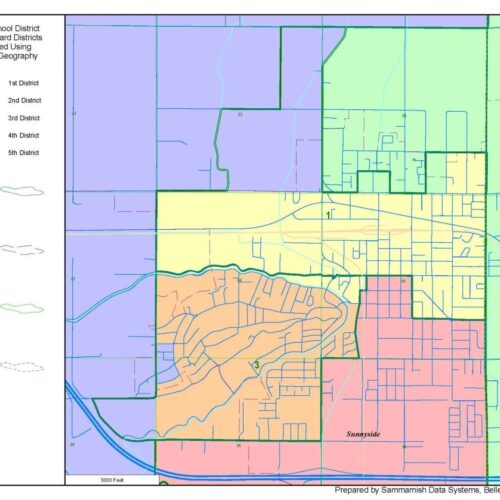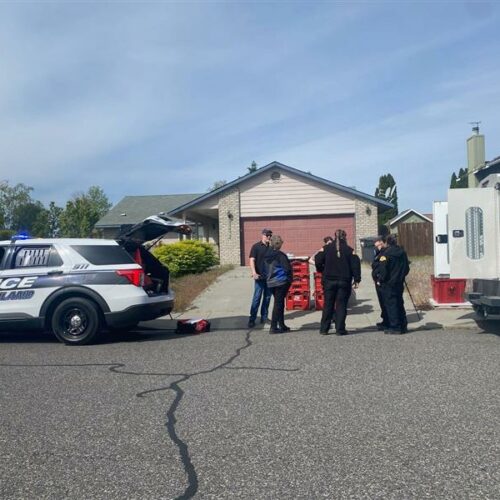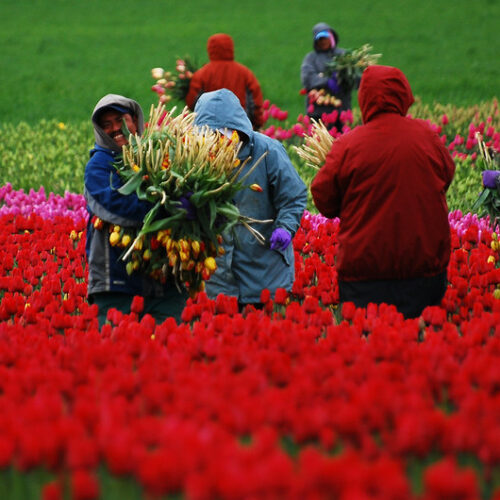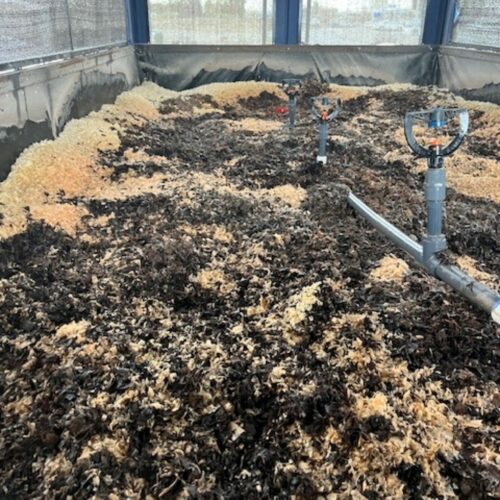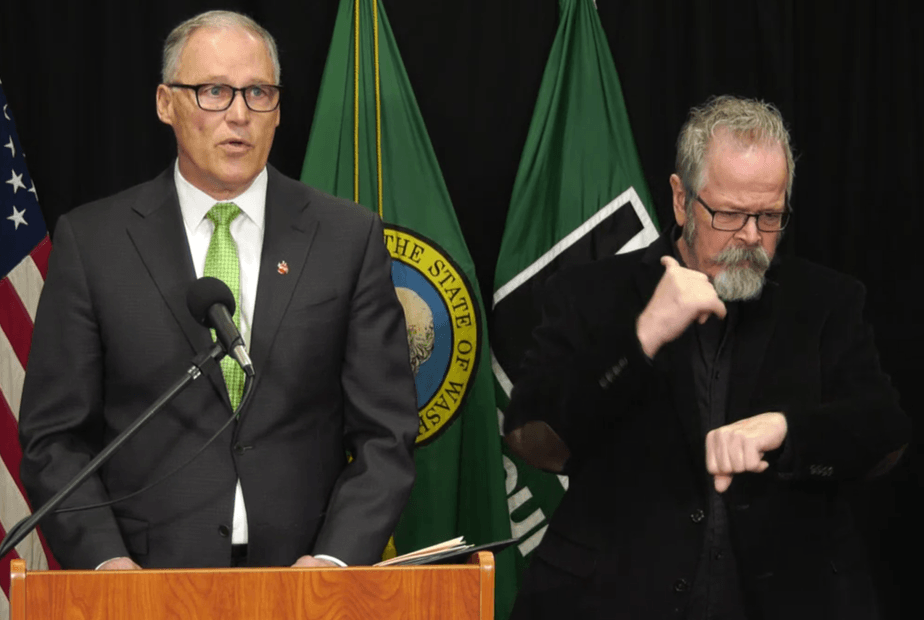
Schools Close, Colleges Go Online, Pullman Declares Emergency As COVID-19 Response Ramps Up
WATCH
Compiled from reporting by multiple Northwest News Network stations
Updated March 12, 2020 9:10 p.m.
Amid rapidly developing COVID-19 news and regional and national event cancellations Thursday, Washington lawmakers sent Gov. Jay Inslee a $200 million emergency funding measure to combat coronavirus.
It was one of the last bills to pass before the Legislature adjourned Thursday night.
First, lawmakers planned to commit $100 million from the state’s rainy day fund to address the coronavirus emergency. But on the last day of the legislative session they doubled that number and added some additional provisions. The bill allows people in quarantine to qualify for unemployment insurance benefits. It also creates a pathway for high school seniors to be relieved of some graduation requirements in light of school closures because of the global pandemic.
Senate Majority Leader Andy Billig of Spokane called it one of the most important bills of the legislative session.
“We certainly don’t know what’s ahead we’re going to have some challenging times in our state and throughout the world related to the COVID-19 outbreak,” Billig said.
He says the purpose of the funding is to give front line public health officials the resources they need to address the crisis. The bill also creates a $25 million unemployment account. The measure passed the Senate and the House unanimously. –Austin Jenkins / Northwest News Network
Emergency Declarations
A growing list of Northwest jurisdictions are declaring states of emergency in response to the COVID-19 outbreak. That now includes Yakima County and the city of Pullman. Yakima County has at least two confirmed cases.
Pullman has no confirmed confirmed, but its main employer, Washington State University, is shifting all classes to online instruction indefinitely. That’s expected to have a big impact on the city’s businesses, as many students may not physically return to town from spring break, which begins Saturday and lasts for a week.
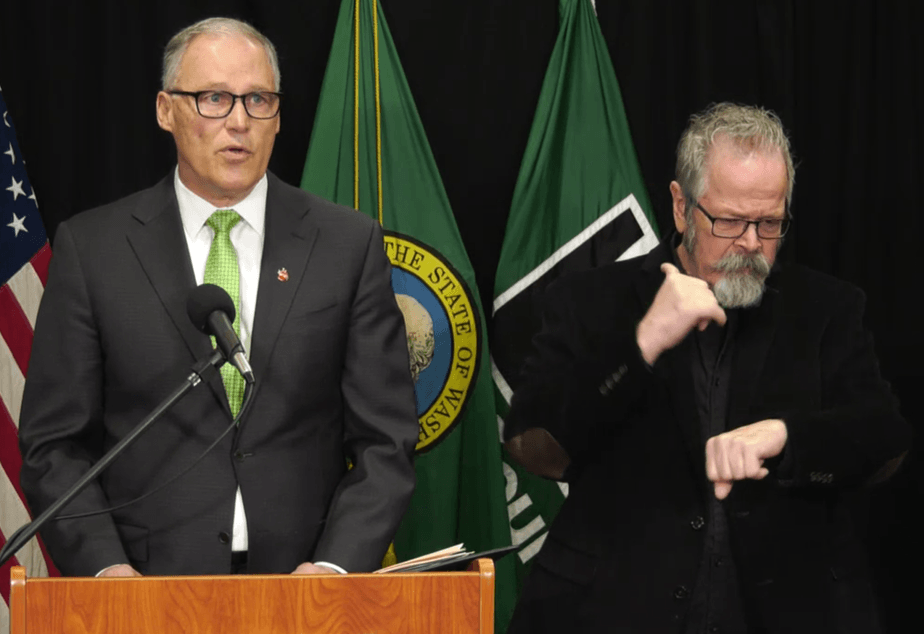
Gov. Jay Inslee announces a ban on large events and gatherings of more than 250 people in King, Snohomish, and Pierce counties on Wednesday, March 11, 2020. CREDIT: King County TV
The emergency declarations allow cities and counties to bypass hiring and contracting regulations to speed up response and address public health and safety concerns more quickly.
Inslee Limits Gatherings, Seattle-Area Schools Closed
Governor Jay Inslee announced said that all public K-12 schools in King, Pierce and Snohomish counties will close through April to slow the spread of the new coronavirus.
That’s on top of the Wednesday announcement that event with more than 250 people are prohibited in King, Pierce, and Snohomish counties. Inslee, county and public health officials announced the dramatic step Wednesday, saying this is the proven way to stop coronavirus from overwhelming our communities.
“We don’t take these decisions lightly, but we are facing an unprecedented health emergency,” said Dr. Jeff Duchin with Public Health Seattle and King County. He noted this virus is at least 10 times more deadly than the common flu.
Sporting events, concerts, fundraisers, religious events, and other gatherings with more than 250 people are prohibited until at least April. The order does not apply to schools, workplaces, or ports. But Seattle’s public schools are closed for the next two weeks.
Inslee said the state is going to fight the pandemic as best it can.
“And the reason is we do not want to see an avalanche of people coming into our hospitals with limited capacity,” Inslee said. We have a solid plan to accommodate what could be thousands of people who need serious medical attention. But that will be stretched at best.” – Paige Browning / KUOW
Arts, Music, Many Events Affected
Arts and music groups and organizations of all types stand to be profoundly affected by the measures in the Puget Sound region – with many more across the state voluntarily canceling events, fundraisers and regular performances.
Many staple arts and culture institutions in Seattle are effectively shutting down for the month due to the new restrictions, including Benaroya Hall, Pacific Northwest Ballet and Seattle Symphony.
“We are a fragile ecosystem at best,” said Bernie Griffin, managing director at the 5th Avenue Theatre.
The theater will not be able to show its upcoming performances of “Sister Act,” which Griffin anticipated would be one of their most popular and as a result they’re losing $1 million in revenue.
“To have something like this that is unprecedented could be potentially devastating for the sector,” Griffin said.
Arts and culture institutions say ticket holders for cancelled events can help nonprofits by not asking for a refund and instead donating their ticket costs to the venue. Some relief for artists who have already been impacted by cancelled events is being organized through fundraising campaigns. – Kari Plog / KNKX
College Sports Abruptly End
The NCAA says it will cancel its men’s and women’s basketball tournaments, known as March Madness, updating the decision earlier in the week to go forward with the tournament but without fans.
NCAA said in a statement Thursday that because of the public health threat due to COVID-19, it became impractical to continue with its popular March Madness men’s and women’s tournaments.
In Spokane, Gonzaga men’s basketball coach Mark Few expressed his disappointment. He told ESPN that he and other coaches and players felt taking a temporary cancellation to monitor the coronavirus situation was appropriate. But they’d hoped the tournament could be played later in April or May.
Few’s team, a perennial tournament contender, had qualified for the national tournament and had a strong chance to play its first and second round games at the Spokane Arena, a mile from the Gonzaga campus.
Other Northwest teams were in the midst of their conference tournaments. The Washington State, Oregon and Oregon State men were all alive in the Pac-12 men’s tournament. The Oregon women won the Pac-12 title. The Eastern Washington University men and Idaho women were playing in the Big Sky tournament.
Though basketball is the most high-profile of the college sports this time of year, it’s not the only one affected. The NCAA also cancelled the remainder of its other winter and spring sports championships, including baseball, gymnastics, wrestling and track and field. – Doug Nadvornick / Spokane Public Radio
Universities Respond
Northwest school and universities are reckoning with what the threat of the novel coronavirus and COVID-19 means for in-person classes.
Near the end of winter quarter, classes at the University of Washington moved online after a staff member tested positive for COVID-19. Much of the outbreak is concentrated in King County and throughout Western Washington.
And now universities east of the Cascades are following UW’s lead.
Eastern and Central Washington Universities have no confirmed cases of COVID-19 as of Wednesday afternoon. But both have announced winter quarter finals will be administered online or via email as a precaution. That policy may be extended through some or all of Spring quarter, according to the schools.
And on Wednesday, Washington State University said it would join a growing list of regional and national schools that will have all campuses transition classes to online instruction. That change begins March 23 – after spring break. At the main Pullman campus, residential, dining, and healthcare facilities will remain open. W-S-U employees will report to work as normal. – Enrique Pérez de la Rosa / NWPB
School is NOT cancelled. We are changing to an on-line instructional format. All campuses will remain OPEN! #GoCougs https://t.co/AlLeoycUiW
— Kirk H Schulz (@WSU_Cougar_Pres) March 11, 2020
Related Stories:
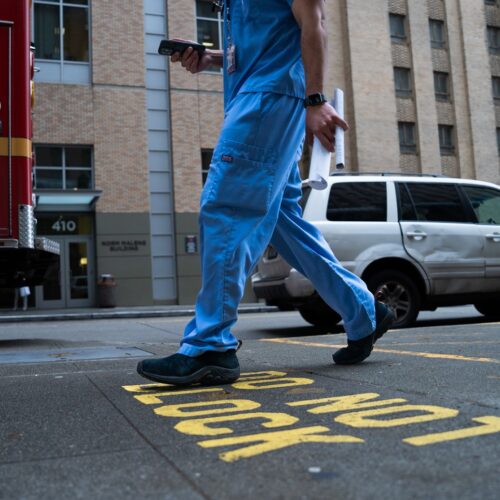
Long-COVID patients need more resources in central Washington
In Washington, there is only one clinic to treat Long-COVID. It is in Seattle on the west side of the state. Long-COVID haulers in the Yakima Valley face a lack of local resources, diagnosis and information. Some say they feel disconnected from their doctors. This is part three of a collaborative piece with palabra about Long-COVID. Continue Reading Long-COVID patients need more resources in central Washington
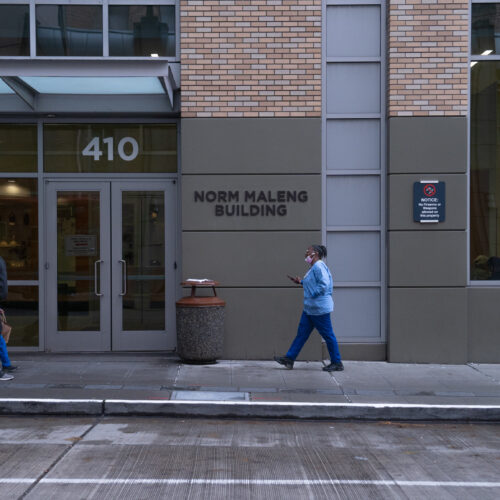
Pacientes de COVID persistente necesitan más recursos en el centro de Washington
En Washington sólo hay una clínica que trata a pacientes de COVID persistente o Long-COVID y está ubicada en Seattle, al oeste del estado. Los pacientes de COVID persistente del valle de Yakima se enfrentan a la falta de recursos locales, diagnóstico e información. Algunos dicen que se sienten desconectados de sus médicos. Continue Reading Pacientes de COVID persistente necesitan más recursos en el centro de Washington
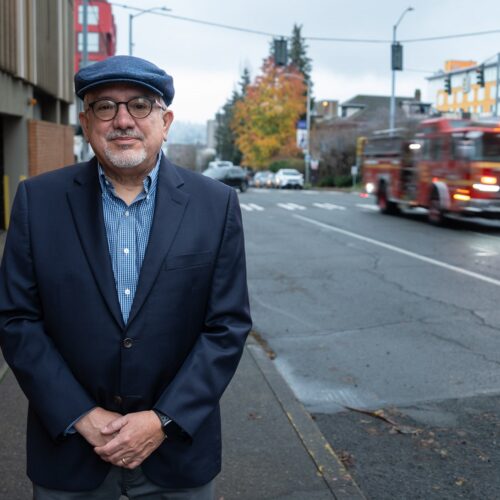
Long-term impacts of Long-COVID among Latinos being researched in WA
Researchers are looking into Long-COVID in Washington. Nearly half of Latinos were asked whether they have experienced prolonged COVID symptoms and their answers showed they have. Continue Reading Long-term impacts of Long-COVID among Latinos being researched in WA




